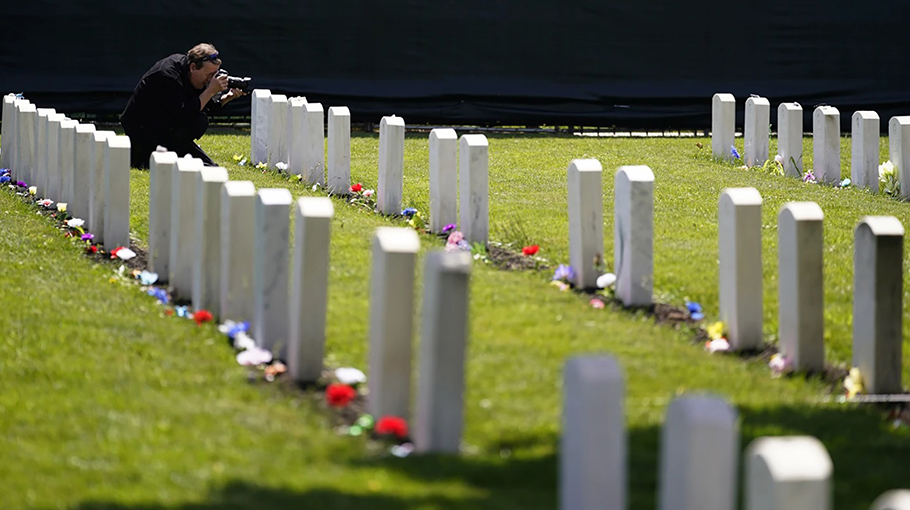Biden to apologize for 150-year Indian boarding school policy


President Joe Biden said he will formally apologize on Friday for the country’s role in forcing Indigenous children for over 150 years into boarding schools, where many were physically, emotionally and sexually abused, and more than 950 died.
“I’m doing something I should have done a long time ago: To make a formal apology to the Indian nations for the way we treated their children for so many years,” Biden said Thursday as he left the White House for Arizona.
Interior Secretary Deb Haaland launched an investigation into the boarding school system shortly after she became the first Native American to lead the agency, and she will join Biden during his first diplomatic visit to a tribal nation as president as he delivers a speech Friday at the Gila River Indian Community outside Phoenix.
“I would never have guessed in a million years that something like this would happen,” Haaland, a member of the Pueblo of Laguna in New Mexico, told The Associated Press. “It’s a big deal to me. I’m sure it will be a big deal to all of Indian Country.” The investigation she launched found that at least 18,000 children — some as young as 4 — were taken from their parents and forced to attend schools that sought to assimilate them into white society while federal and state authorities sought to dispossess tribal nations of their land.
The investigation documented 973 deaths — while acknowledging the figure is likely higher — and 74 gravesites associated with the more than 500 schools. No president has ever formally apologized for the forced removal of these children — an element of genocide as defined by the United Nations — or the U.S. government’s actions to decimate Native American, Alaska Native and Native Hawaiian peoples.
The Interior Department conducted listening sessions and gathered the testimony of survivors. One of the recommendations of the final report was an acknowledgement of, and apology for, the boarding school era. Haaland said she took that to Biden, who agreed that it was necessary. Advertisement “In making this apology, the President acknowledges that we as a people who love our country must remember and teach our full history, even when it is painful.
And we must learn from that history so that it is never repeated,” the White House said in a statement.
The forced assimilation policy launched by Congress in 1819 as an effort to “civilize” Native Americans ended in 1978 after the passage of a wide-ranging law, the Indian Child Welfare Act, which was primarily focused on giving tribes a say in who adopted their children.
The visit by Biden and Haaland to the Gila River Indian Community comes as Vice President Kamala Harris’ campaign spends hundreds of millions of dollars on ads targeting Native American voters in battleground states including Arizona and North Carolina.
“It will be one of the high points of my entire life,” Haaland said of Biden’s apology Friday.
It’s unclear what action, if any, will follow the apology. The Interior Department is still working with tribal nations to repatriate the remains of children on federal lands. Some tribes are still at odds with the U.S. Army, which has refused to follow federal law regulating the return of Native American remains when it comes to those still buried at the Carlisle Indian School in Pennsylvania.
“President Biden’s apology is a profound moment for Native people across this country,” Cherokee Nation Principal Chief Chuck Hoskin Jr. said in a statement to the AP.
“Our children were made to live in a world that erased their identities, their culture and upended their spoken language,” Hoskin said in his statement. “Oklahoma was home to 87 boarding schools in which thousands of our Cherokee children attended. Still today, nearly every Cherokee Nation citizen somehow feels the impact.”
Friday’s apology could lead to further progress for tribal nations still pushing for continued action from the federal government, said Melissa Nobles, chancellor of MIT and author of “The Politics of Official Apologies.”
“These things have value because it validates the experiences of the survivors and acknowledges they’ve been seen,” Nobles said.



